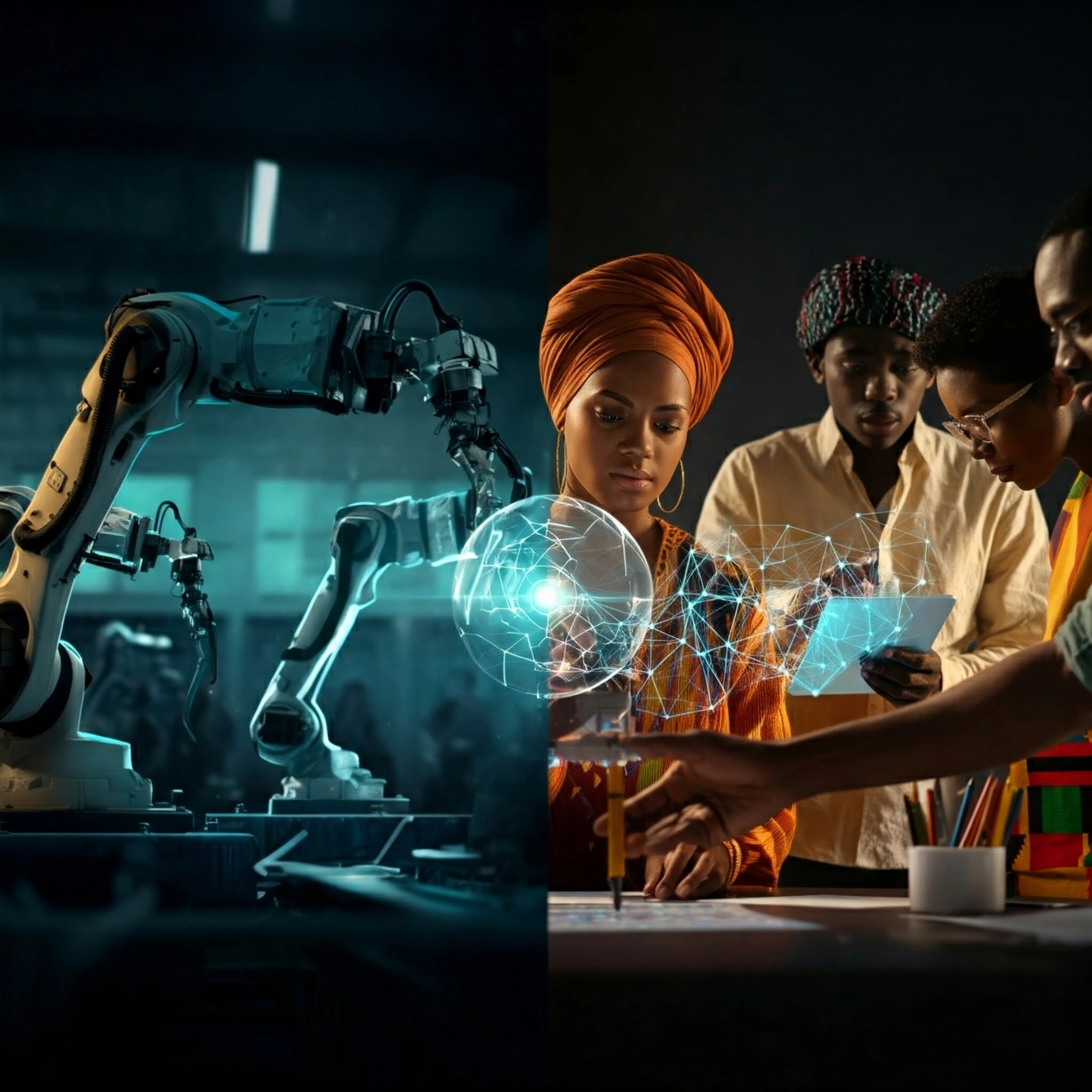For the full paper : https://oii.io/6WbMFp
Artificial intelligence (AI) is rapidly changing the nature of work, sparking both anxieties about widespread job displacement and excitement about the creation of new roles and opportunities. While some jobs are undoubtedly being automated, AI is also creating demand for new skills and professions, leading to a complex and dynamic transformation of the workforce.
Routine and repetitive tasks are most susceptible to automation. Manufacturing, transportation, and data entry are just a few sectors where AI-powered robots and algorithms are already taking over jobs previously performed by humans. Self-checkout kiosks, automated customer service chatbots, and self-driving trucks are becoming increasingly common sights, reflecting the growing impact of AI on various industries.
However, the narrative of AI as a purely job-destroying force is incomplete. AI is also creating a surge in demand for professionals who can develop, implement, and maintain these intelligent systems. This includes roles like AI specialists, machine learning engineers, data scientists, and robotics experts. Furthermore, AI is also generating new opportunities in areas like AI ethics, AI safety, and AI training, as society grapples with the broader implications of this transformative technology.
“The impact of AI on the job market is not a simple story of robots replacing humans,” says an AI researcher focused on the future of work. “It’s a more nuanced picture of transformation, where some jobs are lost, others are created, and many are fundamentally changed. The key is to adapt and acquire the skills needed to thrive in this new landscape.”
This transformation requires a proactive approach to education and workforce development. Governments, educational institutions, and businesses need to invest in programs that equip workers with the skills needed to succeed in an AI-powered economy. This includes not only technical skills in areas like programming and data analysis but also “soft skills” like critical thinking, problem-solving, and creativity, which are becoming increasingly important in a world where machines handle routine tasks.
The rise of AI also presents an opportunity to rethink the nature of work itself. With machines taking over repetitive tasks, humans can potentially focus on more creative, fulfilling, and meaningful work. This could lead to a future where work is less about rote tasks and more about innovation, collaboration, and human connection.
However, the transition will likely be uneven, with some workers and communities facing greater challenges than others. Addressing the potential for increased inequality and ensuring a just transition for all workers is a critical challenge for policymakers and society as a whole.
The AI-driven transformation of the job market is a complex and ongoing process. While the future remains uncertain, one thing is clear: adaptability, lifelong learning, and a focus on uniquely human skills will be essential for navigating the changing landscape of work in the age of artificial intelligence.
Other recent tech stories that are making waves:
- The Metaverse and the Future of Social Interaction: Companies are investing heavily in developing the metaverse, a persistent, shared virtual world where users can interact, work, play, and shop. The metaverse has the potential to revolutionize social interaction, entertainment, and commerce.
- Quantum Computing’s Potential to Revolutionize Industries: Quantum computing, which harnesses the principles of quantum mechanics to solve complex problems, is still in its early stages but holds the potential to revolutionize fields like medicine, materials science, and artificial intelligence.
- Biotechnology and the Quest for Longevity: Advances in biotechnology, including gene editing and regenerative medicine, are raising hopes for extending human lifespan and improving healthspan, leading to ethical and societal debates about the implications of longer, healthier lives.
